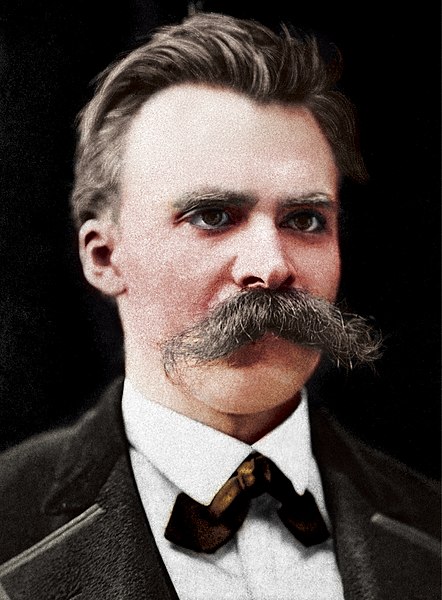
A cruel and unusual punishment!
The story of Sisyphus and the philosophical question of his happiness—it’s a thought-provoking topic. The tale of Sisyphus, a figure from Greek mythology, is quite compelling. He was condemned by the gods to roll a boulder up a hill for all of eternity, only for it to roll back down each time it reached the summit. This cruel and unusual punishment was for his trickery and defiance towards the gods.
Yet the French-Algerian philosopher Albert Camus asks us to imagine Sisyphus to be happy in the closing line of his influential essay ‘The Myth of Sisyphus.’ Why must he be happy? How does he not rage against his fate and the fact that he compelled to relive it over and over again for as long as the gods desire, in endless futures of toil, sweat, hardship, in a task that has been deliberately engineered to break his will, because when it’s all said and done it’s essentially meaningless?
In his essay, Camus uses the tragic figure of Sisyphus as a symbol of the human condition. He argues that, like Sisyphus, humans are faced with the repetitive, futile, and absurd nature of life and existence. We get up every day and we go to work, we provide for ourselves and others in a loop oddly reminiscent of the movie Groundhog Day, in which we undertake the same kinds of events day in, day out from the cradle to the grave.
In the struggle to survive, to get through the day, we often come face to face with an existential condition called the Absurd. We work, we live, we exist, but in none of it does there seem to be any meaning, no reason nor rhyme to it all. The universe seems cold and indifferent, our quest for meaning futile, yet nevertheless like Sisyphus we keep on seeking it out. The boulder being pushed up the hill becomes a symbol of the burdensome nature of our quest for meaning in a world that offers us none.
The Absurd
The concept of “the absurd” in philosophical thought is deeply intriguing. It refers to the conflict between the human tendency to seek inherent value and meaning in life and the inability to find any in a purposeless, chaotic, and indifferent universe. This clash leads to a sense of disillusionment and disorientation, a realization that the universe does not cater to our demands for purpose, order, and reason.
The origin of the absurd in philosophical thought can be traced back through existentialist philosophers such as Camus, Jean Paul Sartre, and Nietzsche to Kierkegaard and beyond. As long as there have been human beings the absurd has been around in one form or another. The universe is ordered, and we have a place within in it, all of which seemingly hints at a grand design or an ongoing telos to the cosmos making us yearn to understand our role in it not as a simple cog in a grand machine but from the point of view of the entire thing. We need to understand the big picture, what is it all for, what is the point of it all, why are we all here?
And, in response to these subtle questions, our grand gestures, our prayers and supplications to the gods and our investigations into science there is only silence. A cold, indifferent silence that chills us to the bone, like the wind that blows across the hillside as Sisyphus continues to roll his boulder along. There is a huge difference between our expectations and the actual reality of the external world. The world is not only meaningless, but it’s inherently devoid of meaning, it’s lack of meaning comes built in, and any attempt to ascribe meaning to it is useless. The dissonance between the desire for meaning and the universe that offers none is the root of existential despair.
There is no such thing as a convincing meaning to life, and this often forces people to think the unthinkable and commit suicide, unable to resolve the tension between their mind that demands meaning and the greater universe that offers none. In the same way, turning to religion is a form of philosophical suicide and for Camus is almost as bad, for Camus the fundamental question of philosophy is whether life is worth living or if suicide is a rational solution to the absurdity of existence. Committing suicide in order to escape the absurd, or imagining a meaning or order not evident in life, such as found in religions or other belief systems that provide artificial answers to life’s questions is an attempt to end the absurd and resolve the tension one way or another, either by living a lie or not living at all, such is the immense weight of an existential crisis.
It is, when it’s all said and done the only two choices left to most human beings, but Camus offers us a third and that’s the path of the absurd hero. The absurd hero is someone who confronts the absurdity of life head-on, fully aware of the hopelessness and futility of their situation yet chooses to continue living passionately and defiantly. This hero is not a traditional hero who triumphs over adversity; instead, their heroism lies in their attitude and response to the absurd. He begins by embracing it, acknowledging the lack of inherent meaning in the universe. Unlike those who turn to philosophical or physical suicide to escape this realization, the absurd hero accepts it without resorting to false hopes or illusions. This acceptance is the first act of rebellion.
Rebellion
Rebellion for the Absurd Hero is not a one-time act but a constant state of being. It’s a new mode of being of life in defiance of the grand absurdity of existence. It’s a refusal to give in to despair, a rejection of the idea that life needs a higher meaning to be lived fully, and a persistent search for personal meaning within the parameters of the absurd condition.
In the face of the absurd, the absurd hero asserts their freedom. This freedom comes from the understanding that if life has no inherent meaning, then they are free to create their own meaning. The absurd hero, thus, finds joy and fulfilment in their personal experiences and values, creating a life that is rich and meaningful on their own terms.
In order to understand the Absurd Hero our attention must once again return to Sisyphus condemned to roll a boulder up a hill for eternity. He recognises the futility of his task and like us relives each day, over and over again, but is now free to rebel against this absurd condition by accepting his fate, instead of resisting it, he chooses passionately to embrace it, making it his conscious choice to continue rolling that boulder for as long as time persists, finding purpose in the struggle itself, and revelling in his moments of consciousness. Now Sisyphus lives life fully and passionately in the face of the absurd.
Happiness
The gods may have condemned him to punishment but it’s his choice as to whether he suffers or not, by choosing to embrace his fate and be happy in any case, he rebels against the gods and once more makes himself master in the only place where anything matters and that is within the limitless expanse of his own mind. Sisyphus finds his own path to happiness, not through denial or escape, but through the courageous acceptance and engagement with life as it is. Should we adopt this approach to life it turns the absurd into a canvas for personal freedom and self-expression, making the absurd hero a symbol of resilience and existential defiance.
There’s beauty in the struggle and value in the journey through life for its own sake despite the outcome being futile or pointless, by fully acknowledging and embracing the absurdity of life, one can achieve a form of freedom. By accepting the lack of ultimate meaning, we can create our own meaning. Rebellion is thus seen as a constant confrontation with, and a refusal to succumb to, the absurdity of the human condition, once we accept this paradoxically, we can find joy and passion in our experiences. The knowledge that life is absurd shouldn’t lead to despair, but rather to a more intense and passionate way of living, as it makes every moment precious and meaningful in its own right. The tragedy of Sisyphus’s own fate is what makes his struggle heroic. His refusal to harbour hope of eventual success, is what empowers him.
In conclusion, “The Myth of Sisyphus” is Camus’s way of addressing life’s most challenging question: how to find meaning in a universe that seems devoid of it. He encourages embracing the absurd, finding joy in the journey, and making our own meanings and values. It’s a call to live fully and passionately, in spite of life’s inherent absurdity. This is why we must imagine Sisyphus happy because he recognises and accepts the absurdity of his situation. He finds joy not in the completion of the task, but in the struggle itself.

